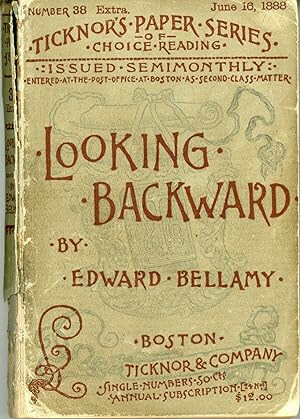Whenever I consciously try to predict something, I’m generally wrong. I think a lot of people end up being wrong, while a lot of people end up being right. That’s because I’m guessing we all are doing wishful thinking.
If I were to make 2024 predictions, I’d probably say that Trump will be soundly defeated, so much so that all the MAGA Republicans will have to retire, and we will return to having two sensible political parties again.
I would also say that in that trouncing, Democrats would end up with solid majorities in both the Senate and the House of Representatives. I would predict that Clarence Thomas and Samuel Alito would either retire or be forcefully retired due to corruption, and two excellent thirty-something judges would be appointed by Joe Biden.
I’d predict the Giants in the Superbowl, and the Knicks as divisional winners. And in tennis, Nick Kyrgos would regain the hunger and win both Wimbledon and the US Open.
Maybe I’d say that everyone would shift their advertising back to newspapers, but even I know that’s a long shot.
Now you can see how predictions can go awry, depending on who is making them. To further buttress that theory, I looked up predictions of the past.
In 1900, the Ladies Home Journal made some predictions for the new century. Here are a few, in their own typeface:
One of the more famous forays into predicting the future was published in 1888 by a journalist, no less.
Edward Bellamy was a journalist in Springfield, Massachusetts and had written a few ordinary novels when he switched gears and concocted a novel something like the Legend of Sleepy Hollow, in that someone fell asleep for 112 years. He woke up to, of course, a much different world, created by Bellamy. Wikipedia has a nice summary:
“a non-violent revolution had transformed the American economy and thereby society; private property had been abolished in favor of state ownership of capital and the elimination of social classes and the ills of society that he thought inevitably followed from them.
In the new world of the year 2000, there was no longer war, poverty, crime, prostitution, corruption, money, or taxes.
Neither did there exist such occupations seen by Bellamy as of dubious worth to society, such as politicians, lawyers, merchants, or soldiers.
Instead, Bellamy’s utopian society of the future was based upon the voluntary employment of all citizens between the ages of 21 and 45, after which time all would retire.
Work was simple, aided by machine production, working hours short and vacation time long.
The new economic basis of society effectively remade human nature itself in Bellamy’s idyllic vision, with greed, maliciousness, untruthfulness, and insanity all relegated to the past.”
Even I would have never made those kinds of predictions, then or now. But of course what Bellamy said, kind of a distillation of socialism, without using the word, became highly influential among all sorts of people, inspiring political and social movements.
What I would say is that Bellamy neglected to look inward, at human nature, and understand that at least in this form of human evolution, most of that stuff would be a non-starter.
The prediction of the future I myself like best is the world of Star-Trek. In that world, people studied what interested them, regardless of the money. In fact, money is rarely mentioned, except of course for the Ferengi, to whom profit was the be all and end all. My idea for this was because they had discovered how to use dilithium crystals for energy, as well as ways to transform energy into all kinds of things, including food and clothing.
Imagine a world in which survival is a given, where people could have as much or as little as they want, and anyone could study whatever they liked, whether it be science, art or just sitting around and watching TV.
So I guess my prediction is that perhaps one day in the future technology will trump human nature (maybe).
Author
-
Founder and editor of the Red Hook Star-Revue. George is also a musician and one-time progressive rock disk jockey, in York, Pennsylvania, also birthplace of Mrs. Don Imus.
View all posts
Founder and editor of the Red Hook Star-Revue. George is also a musician and one-time progressive rock disk jockey, in York, Pennsylvania, also birthplace of Mrs. Don Imus.









